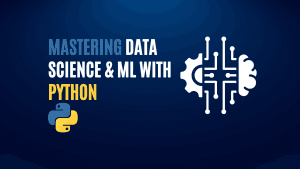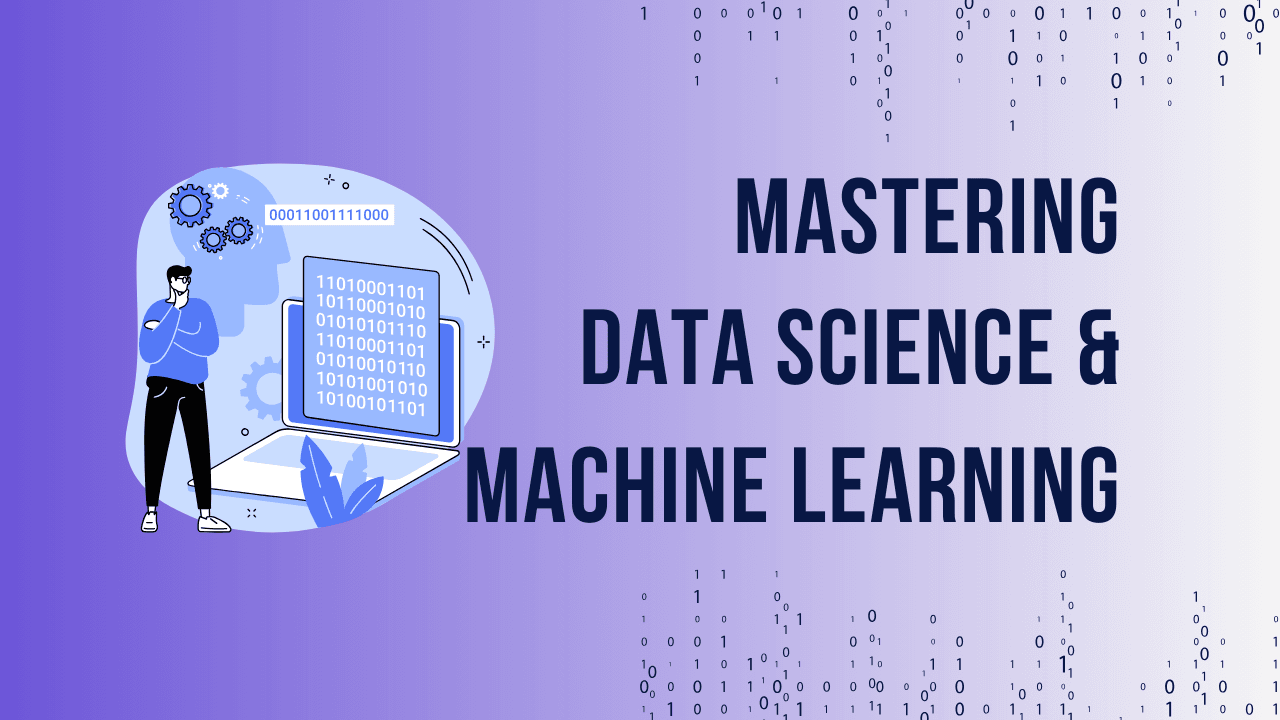Table of Contents
Toggle1. Introduction to Big Data Analytics
What is Big Data?
Big Data refers to the vast amount of information generated every second across the globe. This data comes in various forms – structured, semi-structured, and unstructured – and requires advanced techniques and technologies for its analysis. Big Data analytics helps businesses make informed decisions by identifying patterns and trends that were previously undetectable due to data size limitations.
Why is Big Data Analytics Important?
The ability to process and analyze Big Data provides companies with insights that can lead to improved efficiency, innovation, and competitiveness. Big Data analytics empowers organizations to:
- Identify new revenue opportunities.
- Enhance customer experiences.
- Streamline operational processes.
- Predict market trends with greater accuracy.
Ready to take you Data Science and Machine Learning skills to the next level? Check out our comprehensive Mastering Data Science and ML with Python course.
2. The Role of Big Data in Today's Business
Benefits of Big Data Analytics
Big Data analytics plays a pivotal role in modern business strategies. Some of the primary benefits include:
- Informed Decision-Making: Through predictive analytics, businesses can forecast future trends and make proactive decisions.
- Operational Efficiency: Analyzing operational data helps identify inefficiencies and areas for process improvement.
- Customer Experience Enhancement: By analyzing customer data, companies can personalize products and services to meet customer needs.
Examples of Big Data in Action
Some real-world examples of how Big Data is transforming industries include:
- Healthcare: Big Data is used to predict disease outbreaks and optimize patient care.
- Retail: Companies use data analytics to manage supply chains and understand consumer behavior.
- Finance: Financial institutions use analytics for fraud detection and risk management.
Ready to take you Data Science and Machine Learning skills to the next level? Check out our comprehensive Mastering Data Science and ML with Python course.
3. Common Interview Topics for Big Data Analytics
Data Collection Techniques
Interviewers often focus on how candidates collect and manage Big Data. Key topics include:
- Structured vs. Unstructured Data: Understanding how to differentiate and work with both.
- Sources of Big Data: Social media, IoT devices, transactional systems, and more.
Analytical Tools Used
Proficiency with industry-standard tools is crucial. Expect questions about:
- Hadoop: The most popular framework for distributed data storage and processing.
- Spark: Known for its fast in-memory processing capabilities.
- NoSQL Databases: Including Cassandra, MongoDB, and HBase for handling unstructured data.
Ready to take you Data Science and Machine Learning skills to the next level? Check out our comprehensive Mastering Data Science and ML with Python course.
4. Key Interview Questions on Data Collection
What are the Most Effective Methods for Data Collection?
Data collection is a foundational step in Big Data analytics. You may be asked:
- Explain the process of web scraping and how it’s used to gather large datasets.
- What tools do you use to automate data collection? (Examples: Apache Nutch, Scrapy)
How Do You Ensure the Accuracy of Data?
Data accuracy is critical. Some typical interview questions include:
- How do you clean and preprocess Big Data?
- What techniques do you use to validate data accuracy?
Ready to take you Data Science and Machine Learning skills to the next level? Check out our comprehensive Mastering Data Science and ML with Python course.
5. Analytical Tools Used in Big Data Analytics
Hadoop
Data collection is a foundational step in Big Data analytics. You may be asked:
- Explain the process of web scraping and how it’s used to gather large datasets.
- What tools do you use to automate data collection? (Examples: Apache Nutch, Scrapy)
Spark
Data accuracy is critical. Some typical interview questions include:
- How do you clean and preprocess Big Data?
- What techniques do you use to validate data accuracy?
NoSQL Databases
NoSQL databases are designed for handling unstructured data. Key interview questions may include:
- How do you decide between SQL and NoSQL for a Big Data project?
- Explain the use of NoSQL databases in Big Data.
6. Advanced Interview Questions on Big Data Analytics
What is the Difference Between Batch and Real-Time Analytics?
A common question in interviews, the distinction between batch and real-time analytics is fundamental. Key points to mention include:
- Batch processing deals with large datasets over a specific period, while real-time analytics provides immediate insights.
- Tools for batch processing include Hadoop, while Apache Kafka and Storm are popular for real-time analytics.
How Do You Handle Unstructured Data?
Unstructured data is one of the biggest challenges in Big Data analytics. You may encounter questions like:
- What techniques do you use for managing unstructured data?
- How do you convert unstructured data into actionable insights?
Ready to take you Data Science and Machine Learning skills to the next level? Check out our comprehensive Mastering Data Science and ML with Python course.
FAQs: Big Data Analytics Interview Questions and Answers
What is Big Data Analytics? Big Data analytics refers to the process of analyzing large and complex datasets to uncover patterns, trends, and insights.
How does Big Data support decision-making? It helps businesses make informed decisions by analyzing historical data and predicting future trends.
What are the key tools used in Big Data Analytics? Common tools include Hadoop, Spark, NoSQL databases, and cloud-based solutions like AWS and Azure.
How do you ensure data quality in Big Data? Data quality is ensured through validation techniques, data cleaning, and preprocessing steps.
What is the role of Machine Learning in Big Data Analytics? Machine Learning models use Big Data to train algorithms that make accurate predictions and recommendations.
What are the biggest challenges in Big Data Analytics? Handling unstructured data, ensuring data security, and managing large-scale datasets are common challenges.
Conclusion
Preparing for a Big Data Analytics interview requires a solid understanding of key concepts, tools, and techniques used in the field. Focus on both fundamental and advanced topics to excel in interviews, and ensure you’re familiar with common questions related to Hadoop, Spark, and Machine Learning integration. With the right preparation, you can confidently tackle any Big Data Analytics interview.



